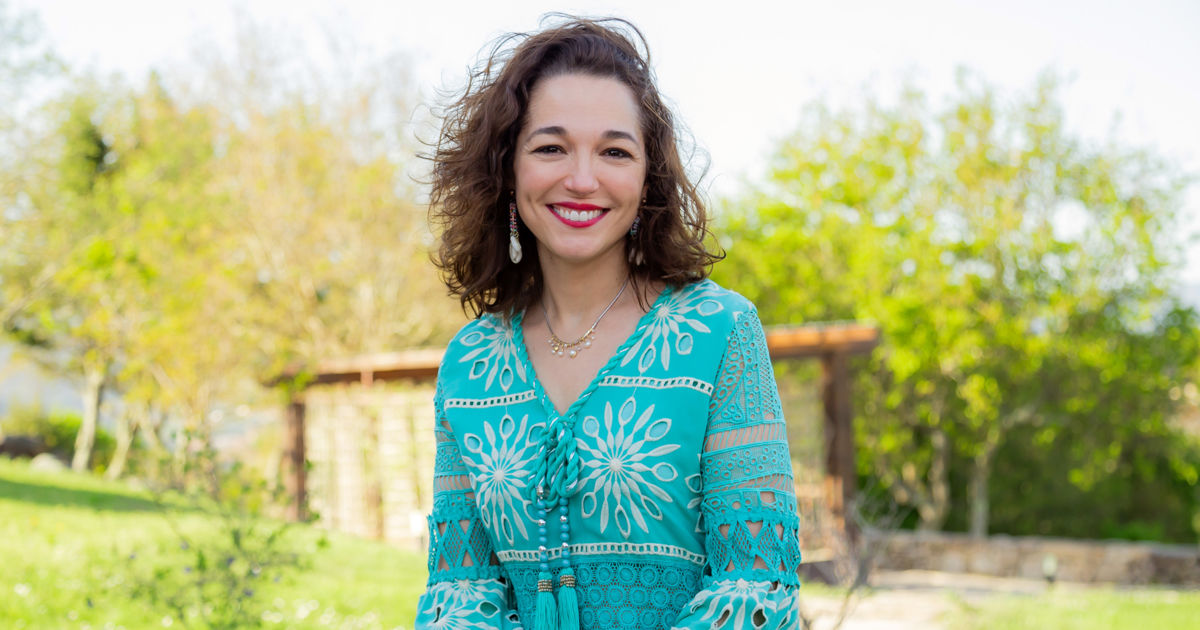Maria Garrido's lessons in listening
As the Jury President of the Entertainment Lions at this year's Cannes, Maria Garrido, Global CMO, Formerly Vivendi, is on a mission to give ear to all voices on the panel. She talks to Carol Cooper about tuning into to true brand value, tuning out of BS and being booed on stage.
When encountering the multilingual, multinational marketing executive and all-round marvel that is Maria Garrido, a maxim comes to mind: “If you want something done, ask a busy person.”
Anyone who's managed to hold down two jobs – alongside her role at Vivendi she was also Chief Insights Officer at Havas Group – while being a single mum of three boys, active on a number of boards and a member of the prestigious International Women's Forum – is clearly one to embrace busy-ness.
I sleep well, but I could sleep more. I probably would have been diagnosed with hyperactivity if it had been a thing when I was a kid.
Beaming via Zoom from her Paris office, her bright eyes and smile radiate positivity and she is dazzlingly articulate. A seasoned public speaker – Cartagena Inspira, Mumbrella Australia, Cannes Lions, South Summit, CubeX Mumbai, IBC and more – she never pauses for ums and aghs.
I ask her how she manages her insane schedule. “I sleep well, but I could sleep more. I probably would have been diagnosed with hyperactivity if it had been a thing when I was a kid." She confesses it’s not always easy having her head in "in 20 different places simultaneously.”
Once, while at a press conference in the UK, her 14-year-old son was texting her from Paris. “I’m looking down at my phone and I hear my boss go, ‘Oh, Maria can answer that question'. I froze, I thought, ‘I’ve just heard my name; I don’t know what the question is. I wasn’t listening; I’m tending to my son who’s across the Channel, freaking out about something he can’t find for school the next day.”
Credits
powered by
- Agency LOLA MullenLowe/Madrid
- Production Company Landia/Spain
- Director Render Panic
-
-
Unlock full credits and more with a Source + shots membership.
Credits
powered by
- Agency LOLA MullenLowe/Madrid
- Production Company Landia/Spain
- Director Render Panic
- Post Production Metropolitana
- Music Twenty Below Music
- Audio Mix Heard City
- Animation Mr Klaus Studio
- Executive Creative Director Tomas Ostiglia
- Creative Director Fred Bosch
- Creative Director Saulo Rocha
- Creative Director Andre Toledo
- Copywriter Luis Giraldo
- Copywriter Jose Sancho
- Art Director Felipe Antonioli
- Art Director Pedro Sattin
- Producer Felipe Calvino
- Producer Diego Baltazar Macias
- Executive Producer Nico Cabuche
- Producer Alberto Lopez Garrido
- DP Oriol Barcelona
- Post Producer Alvaro Monzon
- Editor Pablo Marchetto
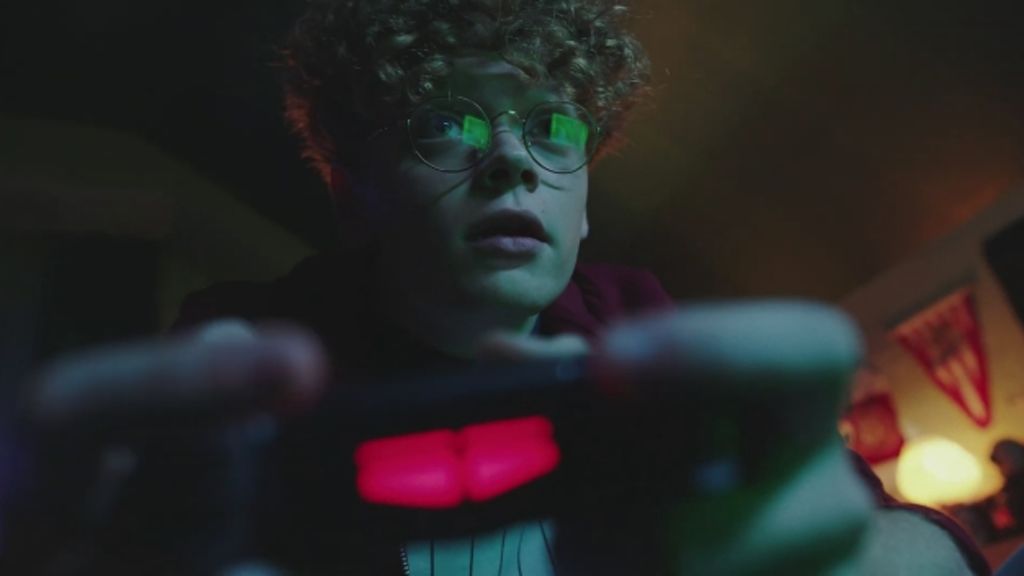
Credits
powered by
- Agency LOLA MullenLowe/Madrid
- Production Company Landia/Spain
- Director Render Panic
- Post Production Metropolitana
- Music Twenty Below Music
- Audio Mix Heard City
- Animation Mr Klaus Studio
- Executive Creative Director Tomas Ostiglia
- Creative Director Fred Bosch
- Creative Director Saulo Rocha
- Creative Director Andre Toledo
- Copywriter Luis Giraldo
- Copywriter Jose Sancho
- Art Director Felipe Antonioli
- Art Director Pedro Sattin
- Producer Felipe Calvino
- Producer Diego Baltazar Macias
- Executive Producer Nico Cabuche
- Producer Alberto Lopez Garrido
- DP Oriol Barcelona
- Post Producer Alvaro Monzon
- Editor Pablo Marchetto
Above: Garrido notes how campaigns incorporating video games have been trending in the entertainment category. Burger King’s successful launch of the Stevenage Challenge brought BK branding, and a little-known club, into the FIFA game space.
Listening though, in general, is her superpower. She excels at helping brands and marketers listen to consumers. For 18 years she held both operational and strategic marketing roles at various FMCG blue chips companies, most notably Colgate Palmolive Co and Mondelez.
In 2014, she made the unusual move of switching to agency side, intent on fast-tracking her digital skills. “A lot of people in the ad world after around 20 years are exhausted and go to the client side. I did the opposite, I went to work for Havas, globally managing insights and analytics. It was great. The pace suited me – it was very fast.” There she learned about data, about insights, about predictive modelling, “all the science part, if you will, the business ROI models.”
This year the amount of video game cases is overwhelming.
She notes how much the profession of marketing has changed. “It’s a very interesting time to be a marketer, because the balance between art and science has hit sort of the sweet spot. There’s a lot more data to work with, and you have to understand how to use that data in a way that you can extract insights and then turn that into brand value.”
But how can brands counter what some consumers might see as the sinister aspect of being ‘listened’ to via data collection? While investigating this question she discovered surprising results – if people could see the value to themselves, such as in the healthcare sector where personal data might lead to a faster diagnosis or the sourcing of a specialist, there was a more positive reaction to the giving up of data. “I think if people see the value of the data collection to themselves as individuals it’s a lot easier to swallow.”
Credits
powered by
- Agency Engine/London
- Production Company Engine Films
- Director David Dearlove
-
-
Unlock full credits and more with a Source + shots membership.
Credits
powered by
- Agency Engine/London
- Production Company Engine Films
- Director David Dearlove
- Post Production Framestore/London
- Post Production nineteentwenty
- Sound Design String and Tins
- Producer Debbie Impett
- EP & Supervisor Karl Woolley
- Designer David Lochhead
- Post Producer Paul Branch
- Colorist Kai Van Beers
- Sound Designer Joe Wilkinson / (Composer/Sound Designer)
- Sound Designer Jim Stewart / (Audio Mixer)
- Producer Laura-Leigh Smith
- DP Oliver Schofield
- Editor Sam Hopkins
- Chief Creative Officer Billy Faithfull
- Executive Producer Katie Farmer
- Producer Seb Roskell
- Creative Director David Dearlove
- Creative Director Orlando Warner
- Creative Director Richard Nott
- Creative David Dearlove
- Creative Richard Nott
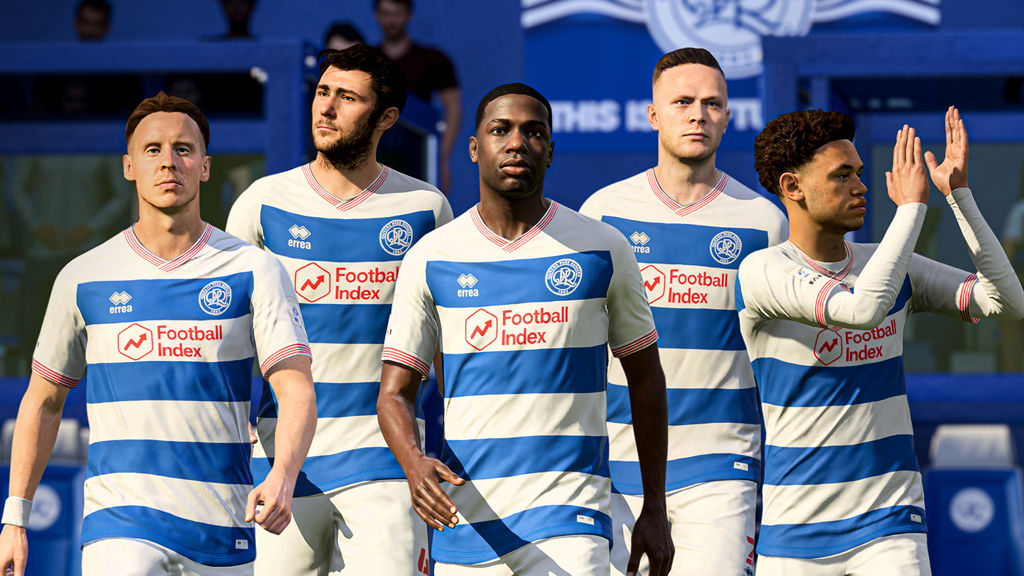
Credits
powered by
- Agency Engine/London
- Production Company Engine Films
- Director David Dearlove
- Post Production Framestore/London
- Post Production nineteentwenty
- Sound Design String and Tins
- Producer Debbie Impett
- EP & Supervisor Karl Woolley
- Designer David Lochhead
- Post Producer Paul Branch
- Colorist Kai Van Beers
- Sound Designer Joe Wilkinson / (Composer/Sound Designer)
- Sound Designer Jim Stewart / (Audio Mixer)
- Producer Laura-Leigh Smith
- DP Oliver Schofield
- Editor Sam Hopkins
- Chief Creative Officer Billy Faithfull
- Executive Producer Katie Farmer
- Producer Seb Roskell
- Creative Director David Dearlove
- Creative Director Orlando Warner
- Creative Director Richard Nott
- Creative David Dearlove
- Creative Richard Nott
Above: Another video game campaign, for the Kiyan Prince Foundation, featured an avatar of the murdered football prodigy Kiyan Prince in a cutting-edge combo of football, gaming and sponsorship.
This is Garrido’s first time as Cannes jury president but her third time as jury member. So with brands and marketers seeking to add value and entertainment offering a solution, does she see this particular Lion growing in stature? “Having judged in this category previously, I can assure you there are definitely a lot more entries to get through than in previous years! We are seeing a spike in activity in this space. And the lines are definitely blurred as the ‘new traditional’ becomes digital, offline, entertainment, etc. all at once.
I think initially brands were throwing themselves into this space more as a test-and-learn, but now I’m seeing better work than I’ve seen in previous years.
And what developments has she noted in the category? Any new trends? “This year the amount of video game cases is overwhelming. Some of them are really basic, like, “Oh, we’ve shoved our brand into the game, and as you’re driving your car through the game, there’s a poster of the brand'. And others are much more interesting as brands are starting to not just use video games, but use gamification as a way to engage customers in spaces that you wouldn’t expect.”
However she cautions against following fads for the sake of it and thinks that brands are wising up to the need for a kind of authenticity in entertainment. “I think initially brands were throwing themselves into this space more as a test-and-learn, but now I’m seeing better work than I’ve seen in previous years, as brands are taking the time to say to themselves, ‘Just because video games are trending doesn’t mean we should throw ourselves into them.”
She feels there is more of a focus on understanding and attempting to reach that target audience and questioning if using a certain entertaining principle is aligned to the brand.
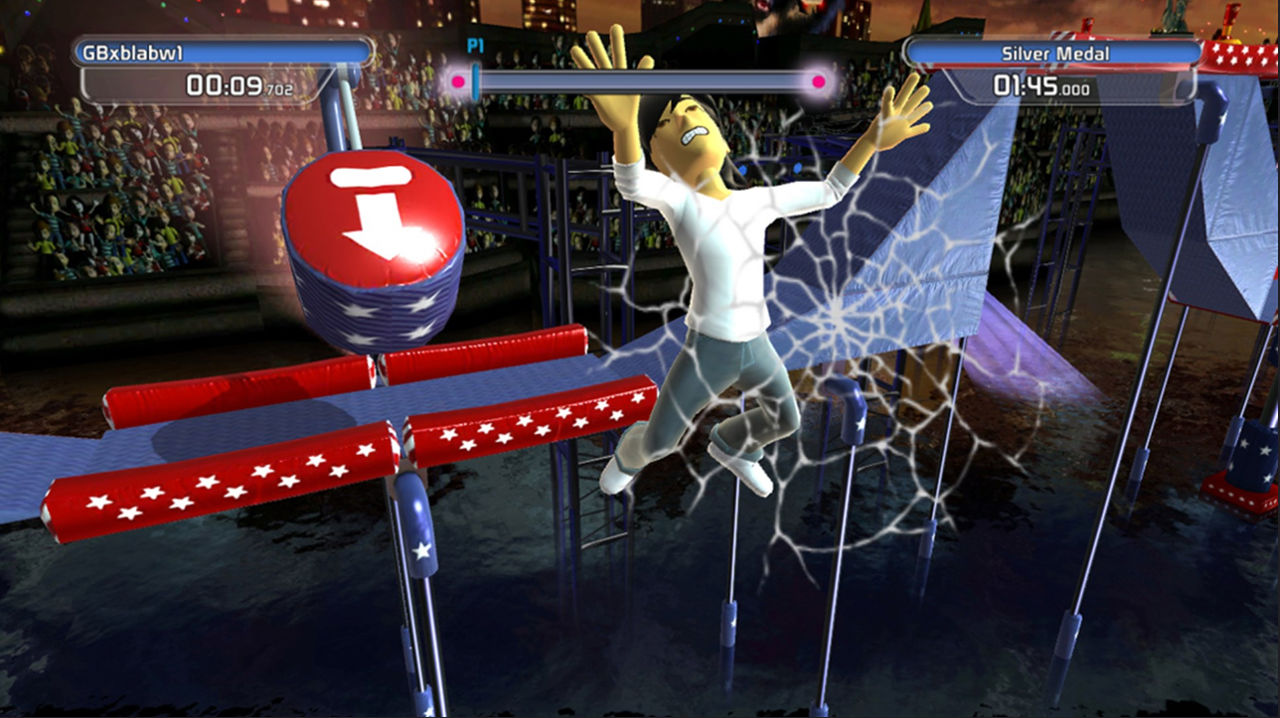
Above: One of the earliest brands to enter the video game space was Doritos, which launched Crash Course in 2010 for the Xbox 360.
On the subject of authenticity in brand purpose she notes that the younger generation, in particular, will not “buy into any BS.” She has been vocal about the subject of inauthentic moves in marketing to the point of being booed on stage. At a finance conference she went on to the podium after the CEO of a large European bank had proudly announced their tree-saving environmental initiative.
Saving trees is cute and will get you some PR, but it’s not what [banking customers] are asking of you. The ESG contribution aligned to your industry would be things like micro-financing for female entrepreneurs.
“I was listening backstage and thinking, ‘Oh no, I’m going to go on and say that while banking customers are expecting you to contribute to society, and saving trees is cute and will get you some PR, it’s not what they’re asking of you. The ESG contribution that is aligned to your industry would be things like micro-financing for female entrepreneurs, or creating jobs, or contributing to the community in a meaningful way.’ I think you have to be careful with ESG stuff and ensure that it’s aligned to what your brand’s purpose is."
She celebrates the fact that this year’s Cannes Lions has a lot more client presence. “So, it’s not just a festival where all the ad people are patting themselves on the back and giving each other trophies. There really is a focus on bringing value to the target audience and to the brand; about impact on the business.”
She says every time she’s been on a jury ‘impact’ has been hotly debated . “For certain people, it’ll be all about sales results. Others will ask, ‘does it reinforce the brand values?’. A piece of entertainment can be great, but if it’s not actually doing anything for the brand then it’s just a big, glamorous, glitzy thing with no actual role within the organisation's strategy.”
Credits
powered by
- Agency Dentsu/Taipei
-
-
-
-
Unlock full credits and more with a Source + shots membership.
Credits
powered by
- Agency Dentsu/Taipei
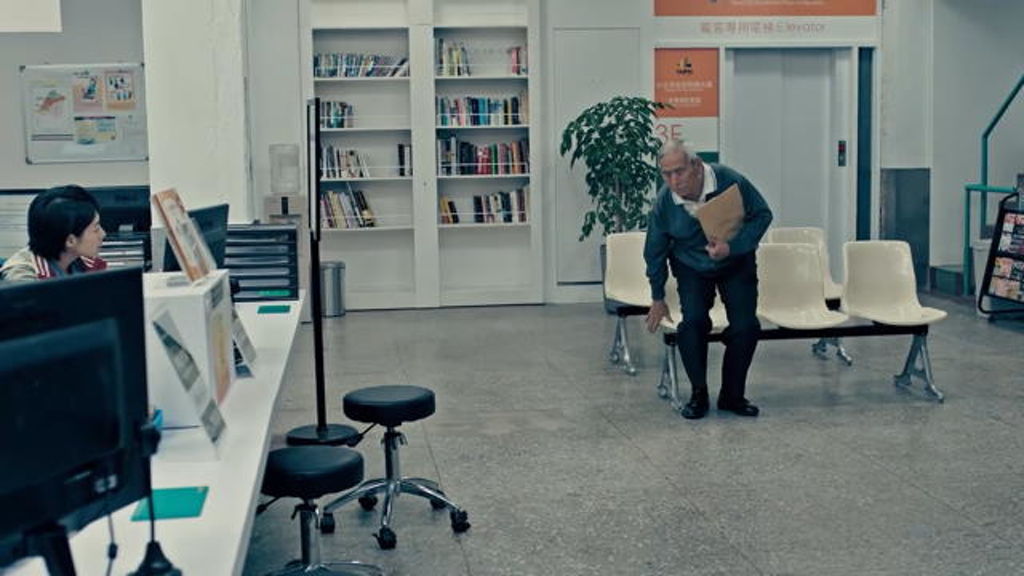
Credits
powered by
- Agency Dentsu/Taipei
Above: Sinyi Realty's In Love We Trust campaign was one of last year's Entertainment Lions big winners.
She unpacks how the two Entertainment Grand Prix winners of Cannes 2021 hit exactly the right notes.
The short film, In Love We Trust, for Taiwanese property company Sinyi Realty, followed the despair of a woman working at the Household Registration Office who lost her faith in love. Created by Dentsu Mcgarrybowen, Taipei, the touching film aimed to inspire more young people to want to get married and buy a home together – to create more customers for the client.
Tinder's, Swipe Night, which won the second Grand Prix, was an interactive adventure video series that prompted users to make choices in the face of the world ending. The campaign, which was launched by 72andSunny LA in 2019, also had the function of matching users according to their decisions, based on apparent shared ethical viewpoints.
It's interesting to note how both campaigns were about love – either finding it or cherishing it. “In Love We Trust was a beautiful piece of work that showed how a property brand can be deeply embedded in important moments in people’s lives; the case was moving and showcased human connection, while staying true to the brand’s functional purpose. The case from Tinder masterfully intertwined interactivity, entertainment and brand benefits.”
Credits
powered by
- Agency 72andSunny/Playa Vista
- Production Company m ss ng p eces
- Director Karena Evans
-
-
Unlock full credits and more with a Source + shots membership.
Credits
powered by
- Agency 72andSunny/Playa Vista
- Production Company m ss ng p eces
- Director Karena Evans
- HP Kate Morrison
- Executive Producer Ari Kuschnir
- Executive Producer Kate Oppenheim
- Executive Producer Brian Latt
- Executive Producer Edward Grann
- Executive Producer Dave Saltzman
- Producer Fuliane Petikyan
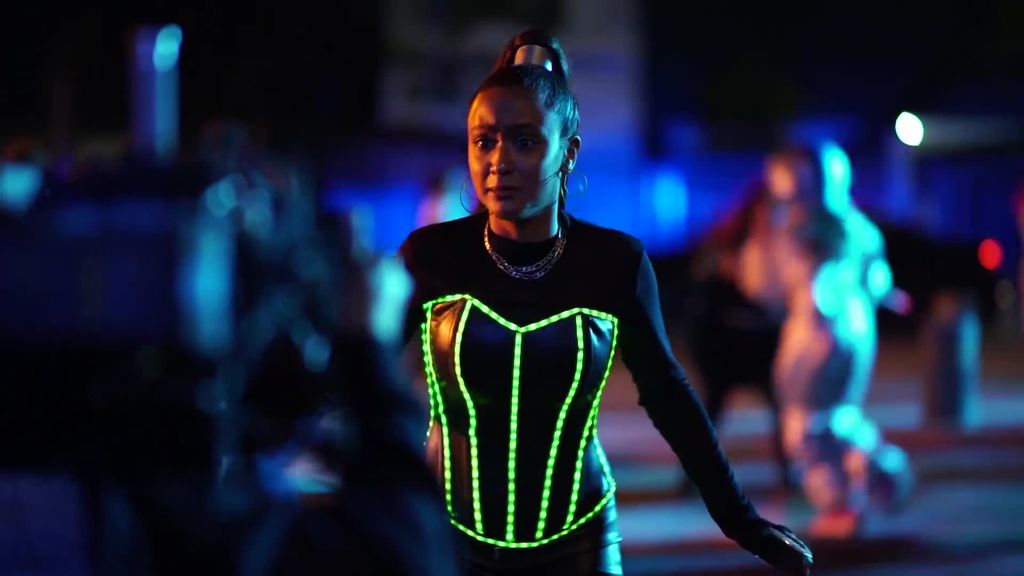
Credits
powered by
- Agency 72andSunny/Playa Vista
- Production Company m ss ng p eces
- Director Karena Evans
- HP Kate Morrison
- Executive Producer Ari Kuschnir
- Executive Producer Kate Oppenheim
- Executive Producer Brian Latt
- Executive Producer Edward Grann
- Executive Producer Dave Saltzman
- Producer Fuliane Petikyan
Above: Tinder's apocalyptic interactive game/series, Swipe Night, won the other Grand Prix in the Entertainment Lions, 2021.
While subjectivity on the judging panels obviously affects all categories she says it can be extra daunting assessing if something is entertaining or not: “Everyone’s version of entertainment can be different,” says Garrido, “plus, we have to be conscious of our unconscious bias and cultural context to ensure we are fairly reviewing every piece of work.”
When asked what kind of a work is likely to catch panel’s collective, objective eye, Garrido brings back the V word: “As a jury, we agreed early on a few key criteria. We’ll be looking for value to the audience – does the content connect to its target in an emotional way, is it engaging or culturally relevant? For the brand, is the work aligned to its core values or positioning and does it deliver positive impact? And of course, we are looking out for excellence in creativity. Has the brand approached entertainment content in an innovative or original way?”
I am particularly sensitive to cultural bias and want to make sure we give work from every country and culture the opportunity it deserves to be reviewed fairly.
Garrido feels "truly honoured” to be jury president this year and will be employing her listening superpower to the max: “I believe my role is to enable the discussions, to ensure that everyone on our jury’s voice is heard and can express their point of view. I am particularly sensitive to cultural bias and want to make sure we give work from every country and culture the opportunity it deserves to be reviewed fairly.”
As the interview draws to an end she shares her other pastimes and projects: she is part of an amateur theatre group and has also founded a boutique hotel retreat in Galicia, Spain, for women who need a self-care getaway.
She says blocking out self-care time in her own schedule helps her manage her seemingly unfeasible to-do list. In fact, after our chat, she's blocked out time for a walk in the woods with her dog. A moment of calm in an admirably busy life.
)












